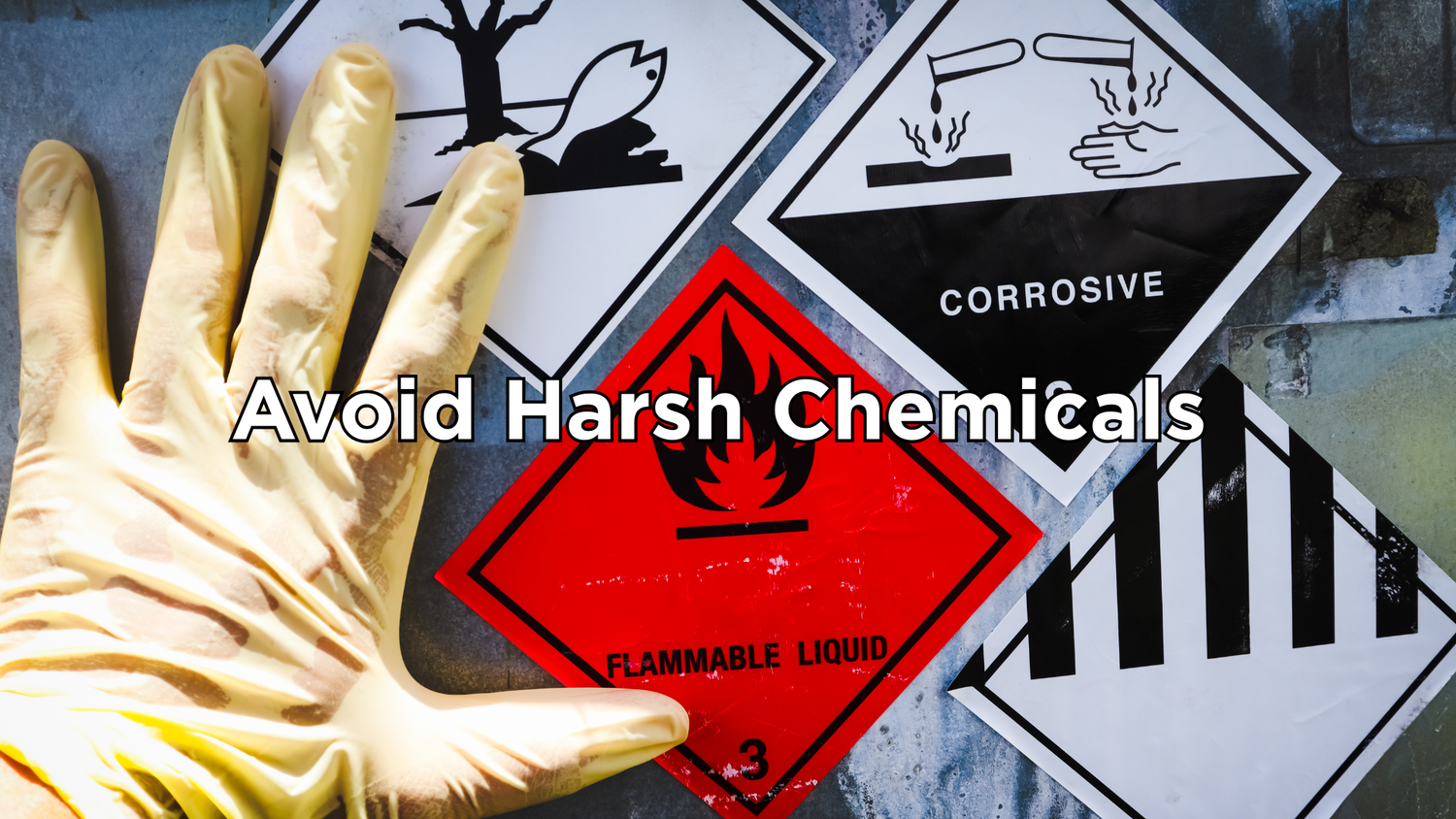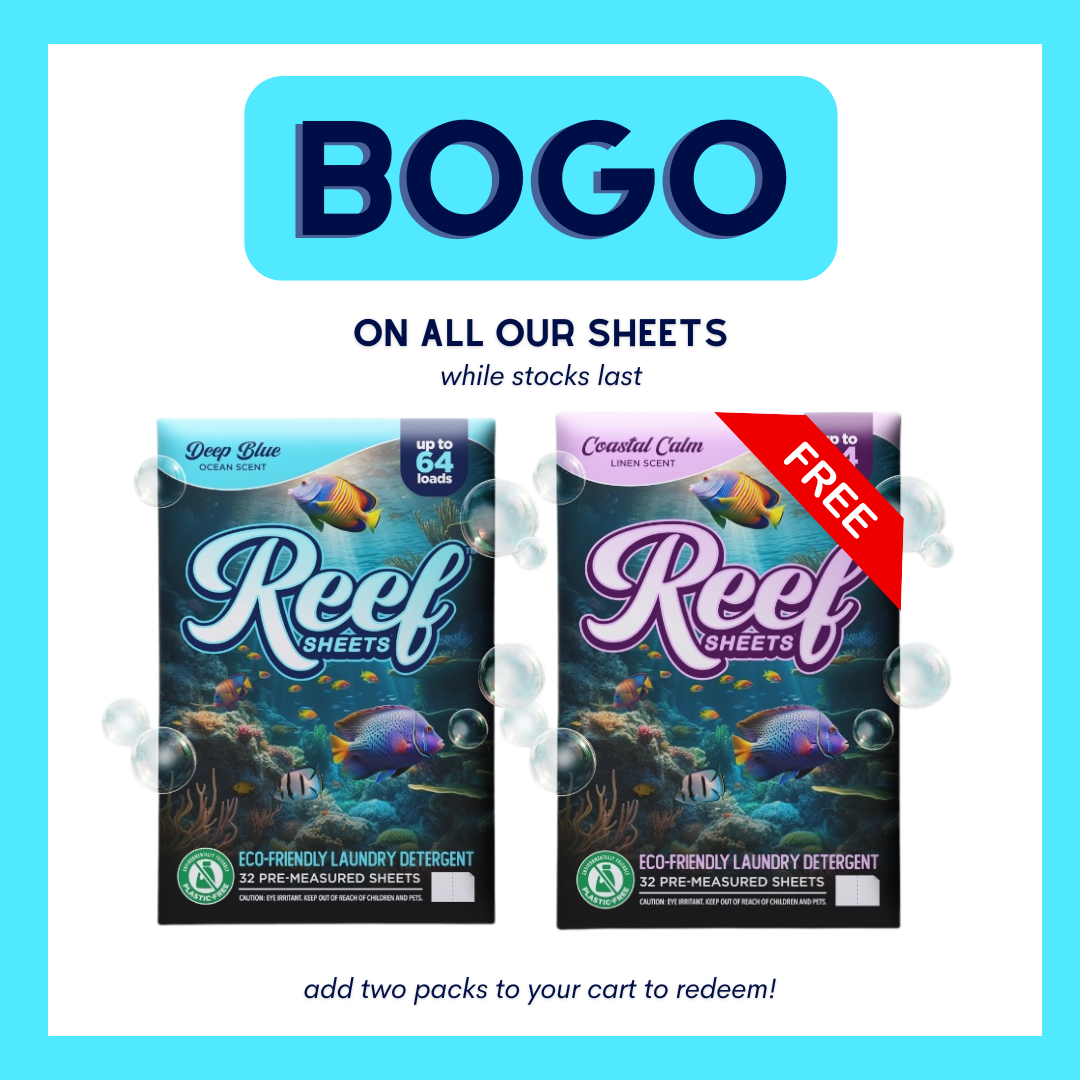In an era where we're increasingly aware of the chemicals we expose ourselves and our environment to, laundry detergent is often overlooked. Yet, the average household uses detergents packed with potentially harmful ingredients like dyes, phosphates, parabens, and carcinogens. These additives can irritate skin, disrupt hormones, contribute to cancer risks, and devastate ecosystems. This article explores the reasons to steer clear of them, highlights some popular brands that still include these substances, and compares them to a cleaner formula that's free of these concerns.
The Dangers of Dyes
Dyes are added to laundry detergents primarily for aesthetic appeal, making the liquid look vibrant or helping clothes appear brighter. However, they offer no cleaning benefits and come with significant downsides. Many dyes are synthetic and can cause skin irritation, rashes, or allergic reactions, especially for those with sensitive skin. They may also act as carcinogens or endocrine disruptors, potentially leading to hormonal imbalances and increased cancer risk. Environmentally, when washed down the drain, these dyes pollute waterways and harm aquatic life by disrupting ecosystems. Studies have linked certain artificial blue dyes to toxic effects, including cellular damage. Overall, dyes are unnecessary additives that prioritize appearance over health and sustainability.
The Problems with Phosphates
Phosphates were once common in detergents as water softeners and cleaning boosters, but they've been phased out in many regions due to their environmental impact. When released into waterways, phosphates act as fertilizers, causing excessive algae growth in a process called eutrophication. This leads to harmful algal blooms that deplete oxygen, killing fish and other aquatic organisms. On the health front, phosphates can irritate skin, trigger respiratory issues like asthma, and cause inflammation in the lungs. Residues may even lead to nausea, diarrhea, or skin irritations if not fully rinsed. Although bans have reduced their use, phosphates still appear in some formulations, contributing to ongoing pollution and health risks.
The Risks of Parabens
Parabens are preservatives used to extend shelf life by preventing microbial growth. In laundry detergents, they help maintain product stability but pose serious health concerns. As endocrine disruptors, parabens mimic estrogen, potentially leading to reproductive issues, hormonal imbalances, and fertility problems. They're linked to increased cancer risk, particularly breast cancer, and can cause skin sensitization or allergic reactions. Animal studies show parabens causing reproductive harm, and they absorb quickly through the skin, amplifying exposure from washed clothes. With no essential role in cleaning, parabens represent an avoidable risk to both personal health and broader environmental safety.
The Threat of Carcinogens
Carcinogens in detergents are among the most alarming ingredients, often hidden as byproducts or contaminants. Common ones include 1,4-dioxane (a byproduct of ethoxylated surfactants), formaldehyde, benzene, and ethylene oxide—all classified as known or probable human carcinogens. These can cause cancer, neurotoxicity, organ damage, and respiratory problems. For instance, 1,4-dioxane is linked to liver and kidney tumors, while formaldehyde irritates the eyes and lungs and increases leukemia risk. Exposure occurs through skin contact with laundered fabrics or inhalation during washing. Solvents like perchloroethylene in some industrial detergents are also carcinogenic. Avoiding these is crucial for long-term health protection.
Common Brands That Contain These Harmful Ingredients
Many conventional laundry detergents from major manufacturers still include these problematic ingredients, despite growing awareness. For example:
-
Tide: Often contains synthetic dyes for color, ethoxylated surfactants that can produce 1,4-dioxane (a carcinogen), and fragrances linked to parabens or endocrine disruptors.
-
Gain: Known for vibrant dyes and strong scents, which may include phthalates (related to parabens) and potential carcinogens like benzene derivatives.
-
Arm & Hammer: Some formulas have phosphates (though less common now) and optical brighteners tied to skin irritation and environmental harm; also potential for 1,4-dioxane.
-
Persil: Can include parabens as preservatives and ethoxylated ingredients that risk carcinogen contamination.
-
All: While it offers "Free & Clear" variants without dyes, standard versions often have dyes, phosphates in older formulas, and surfactants linked to carcinogens.
These brands prioritize performance and scent but at the cost of health and eco-safety. Always check labels, as formulations vary by region and product line.
A Safer Alternative: Reef Sheets Laundry Detergent Sheets
Fortunately, effective cleaning doesn't require these harmful additives—or bulky plastic jugs that contribute to ocean pollution. Enter Reef Sheets, the innovative laundry detergent sheets from ReefSheets.net, designed to be gentle on skin, effective on stains, and kind to the planet—free from dyes, phosphates, parabens, and known carcinogens. Powered by advanced nano-tech, these ultra-thin, lightweight sheets dissolve effortlessly in water, delivering a powerful clean with 99% less water than traditional liquids. No measuring, no spills, no mess—just toss one in your wash for brighter, fresher clothes every time.
Reef Sheets are travel-friendly (TSA-approved and compact for carry-ons), plastic-free to help reduce the 8 million tons of plastic waste entering our oceans annually, and perfect for on-the-go lifestyles like Airbnbs or adventures. Mom-approved and eco-conscious, they're tough on dirt but gentle on the environment, making laundry simpler and smarter.
Here's a breakdown of our key ingredients and why they're safe and effective:
|
Ingredient |
Function |
Safety Notes |
|---|---|---|
|
Water |
Solvent/base |
Naturally occurring; completely safe and essential for dilution. |
|
Sodium Dodecyl Sulphate |
Surfactant (cleans by lifting dirt) |
Biodegradable; may cause mild irritation in high concentrations but is non-carcinogenic and widely used in eco-formulas. |
|
Polyvinyl Alcohol |
Film former (for pods/sheets if applicable) |
Water-soluble and biodegradable; low toxicity and safe for skin. |
|
Glycerin |
Humectant (retains moisture) |
Plant-derived; moisturizes skin and is non-toxic. |
|
Trisodium Citrate |
Builder (softens water) |
Derived from citric acid; eco-friendly alternative to phosphates, with no health risks. |
|
Alcohols, C12-14, Ethoxylated |
Surfactant (breaks down grease) |
Plant-based; when properly processed, free from 1,4-dioxane contaminants; biodegradable. |
|
Glyceryl Cocoate |
Emulsifier (blends ingredients) |
Coconut-derived; gentle and non-irritating. |
|
Cocamidopropyl Betaine |
Foaming agent/surfactant |
Mild, coconut-based; can cause minor irritation in sensitive individuals but is paraben-free and safe overall. |
|
Lauryl Glucoside |
Surfactant (gentle cleanser) |
Plant-derived from glucose; highly biodegradable and low-risk for skin. |
|
PEG-12 Dimethicone |
Conditioning agent (softens fabrics) |
Silicone-based; non-toxic, though PEGs are monitored—ours is purified and safe. |
|
Saponins |
Natural surfactant (from plants) |
Derived from soap nuts or similar; eco-friendly and non-toxic. |
|
Benzothiazolinone |
Preservative |
Effective alternative to parabens; low allergen potential in small amounts. |
|
Sodium Carbonate |
Builder (boosts cleaning) |
Naturally occurring soda ash; safe, non-irritating, and phosphate-free. |
This formula relies on plant-based and biodegradable components for powerful cleaning without the risks. Unlike the brands mentioned earlier, it avoids synthetic additives, reducing skin irritation, hormonal disruption, cancer risks, and environmental pollution. And with Reef Sheets' sheet format, you're ditching heavy jugs for a breezy, planet-friendly routine that fits in your pocket.
Ready to take the plunge into cleaner, simpler laundry? Visit ReefSheets.net today to grab your pack of Reef Sheets and experience the difference—your clothes (and the ocean) will thank you! Use code "SHEETS" for 20% off your order and start sailing toward a mess-free, eco-smart future.
By choosing detergents free from these harmful ingredients, you're making a positive impact. Always read labels and opt for transparency in formulations for a cleaner, healthier home.


